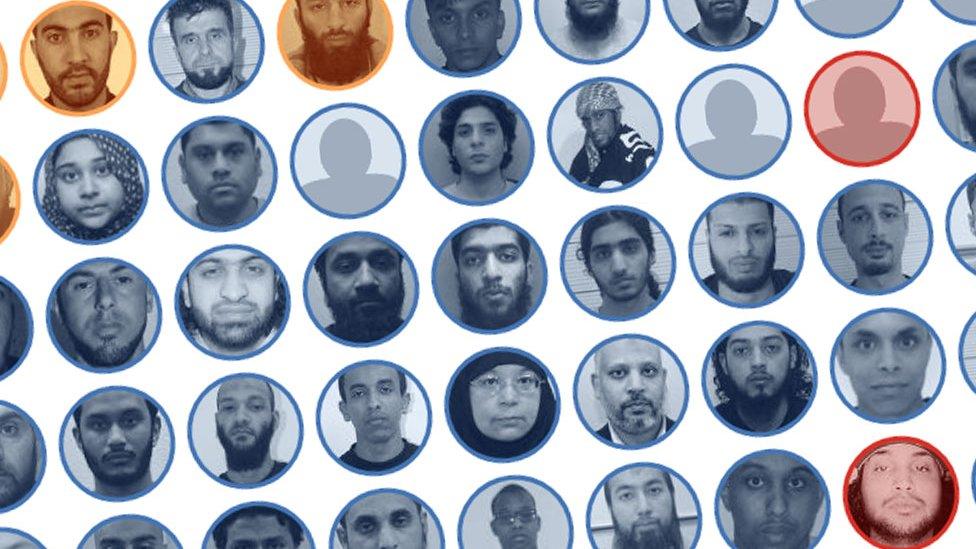Islamic State 'Beatles' pair from UK 'should face trial'
- Published
Bethany Haines said the men should face justice for her father's murder
The families of some of the victims of an Islamic State group that beheaded hostages have said two captured fighters should face trial.
British fighters Alexanda Kotey and El Shafee Elsheikh were captured by Syrian Kurdish forces.
Bethany Haines - whose father David, a British aid worker, was beheaded by the cell - said she hoped they die a "slow, painful death".
Kotey and Elsheikh were two of four UK IS members known as "the Beatles".
"They should be locked up and throw away the key," Ms Haines said.
Should there be a trial, she said she would attend and "look them in the eye and let them know I am who I am and they have certainly destroyed a big part of my life. Hopefully there will be some justice."
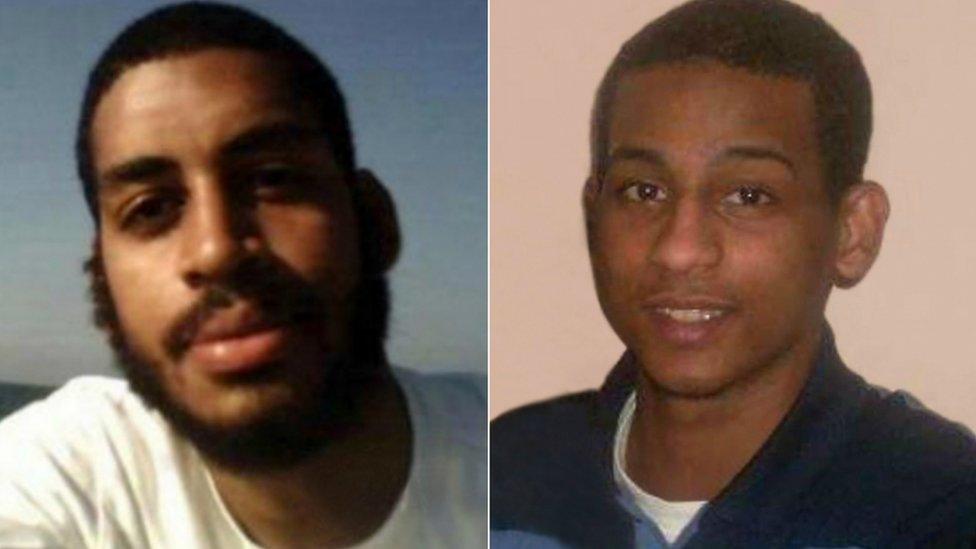
Alexanda Kotey, left, and El Shafee Elsheikh were the last two members of the cell at large
Diane Foley - whose son James, an American journalist, was beheaded by the cell - said she wanted the two men to face life imprisonment.
She told BBC Radio 4's Today programme: "Their crimes are beyond imagination."
Mrs Foley said that she would like the men to face trial in the US but she would be "most grateful" so long as "they are brought to fair trial and detained and justice is served".
"It doesn't bring James back, but hopefully it protects others from this kind of crime," she said.
Kotey and Elsheikh were the last two of "the Beatles", so-called because of their British accents.
Kotey, from west London, was a guard for the group that was described by US authorities as an execution cell. The US State Department says he took part in the torture of hostages, external and acted as a recruiter for IS.
Elsheikh "earned a reputation for waterboarding, mock executions, and crucifixions", external while serving as the cell's guard, the US state department says.
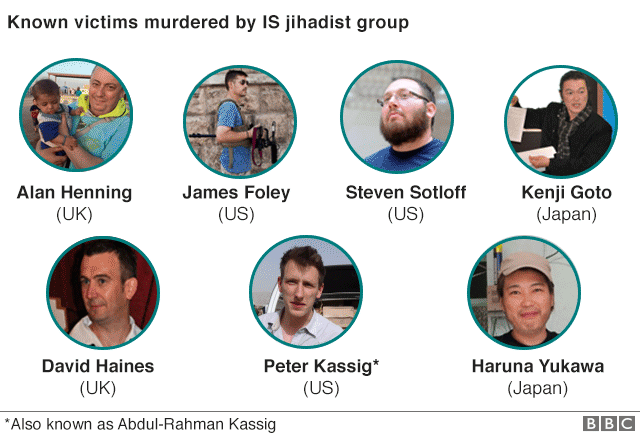
Both are designated terrorists by the US, which says they have used "exceptionally cruel torture methods".
They worked with the cell's alleged ring-leader, Mohammed Emwazi.
Dubbed Jihadi John, he was the masked militant from west London who featured in gruesome IS videos, taunting Western powers before beheading hostages.
Mr Foley was one of the victims whose death was seen in those videos. Others were British aid workers David Haines and Alan Henning, US journalist Steven Sotloff, and American aid worker Peter Kassig.
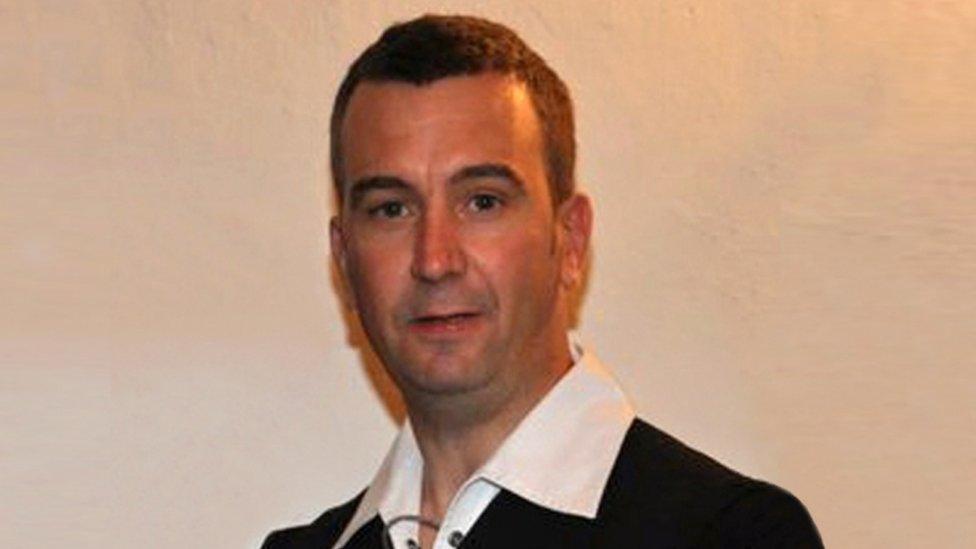
Mr Haines was working for a French aid agency when he was captured by Islamic State militants
Emwazi was killed in a drone strike in 2015 in Raqqa, the former de facto IS capital in Syria.
Aine Davis, also from west London and the fourth member of the cell, was convicted of being a senior IS member. He was jailed in Turkey last year on terrorism charges after being arrested near Istanbul in 2015.
The father of Aine Davis has told the BBC that his son had nothing to do with the cell.
Nicolas Henin, a French journalist who spent 10 months as an IS captive, told Today that he wanted justice and not revenge.
He stressed that any attempt to deny the men of their civil rights would only feed IS's claims of victimisation by the West.
"I will be extremely frustrated if they were not offered a fair trial and I don't think the local authorities in northern Syria or detention in Guantanamo Bay would be justice," he said.
US officials said the "execution cell" had beheaded at least 27 hostages and tortured many more. They confirmed the latest arrests.
Officials quoted by US media said the two men had been captured by members of the US-backed Syrian Democratic Forces (SDF), who are targeting remnants of IS.
A Kurdish official from the SDF has said Kotey was on his way to Turkey when he was captured.
"He was intending to escape towards Turkey with co-operation and co-ordination with friends of his on the Turkish side. He is now under investigation with us," Redur Xelil said.
A Turkish security official called the claim "nonsense".

Analysis
By Gordon Corera, BBC security correspondent
The Home Office will not comment on individual cases but it is understood that the two men have been stripped of their British citizenship.
In recent years, there has been an increased use of this power, largely in response to those travelling out to Syria and Iraq.
The home secretary can deprive someone if that is considered conducive to the public good and doing so would not make them stateless.
But there is also the power to remove it if a person obtained their citizenship fraudulently or through naturalisation and there are "reasonable grounds" to believe the person is able to become a national of another country.
The home secretary has to personally decide to carry out a deprivation.
US-backed forces may be celebrating, but IS has not been defeated
- Published11 August 2022
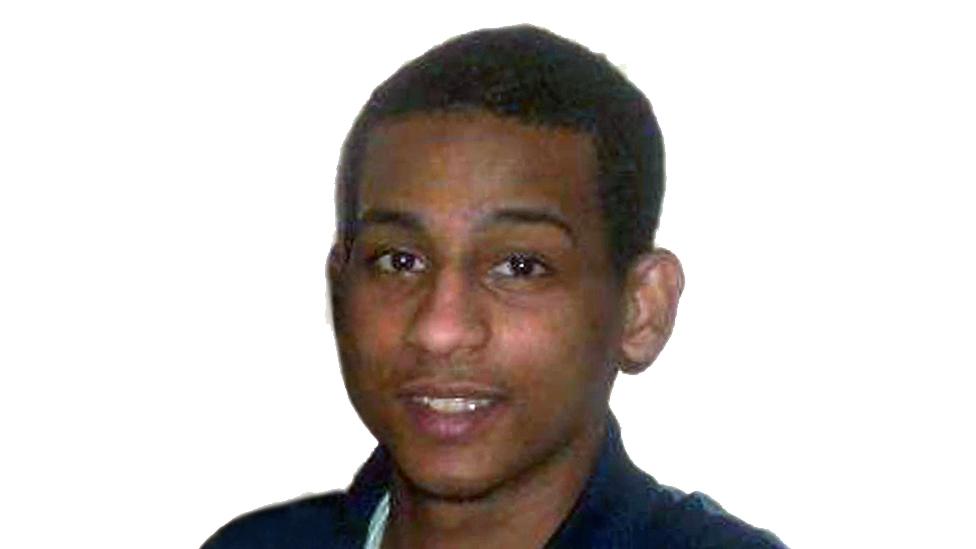
- Published8 February 2018
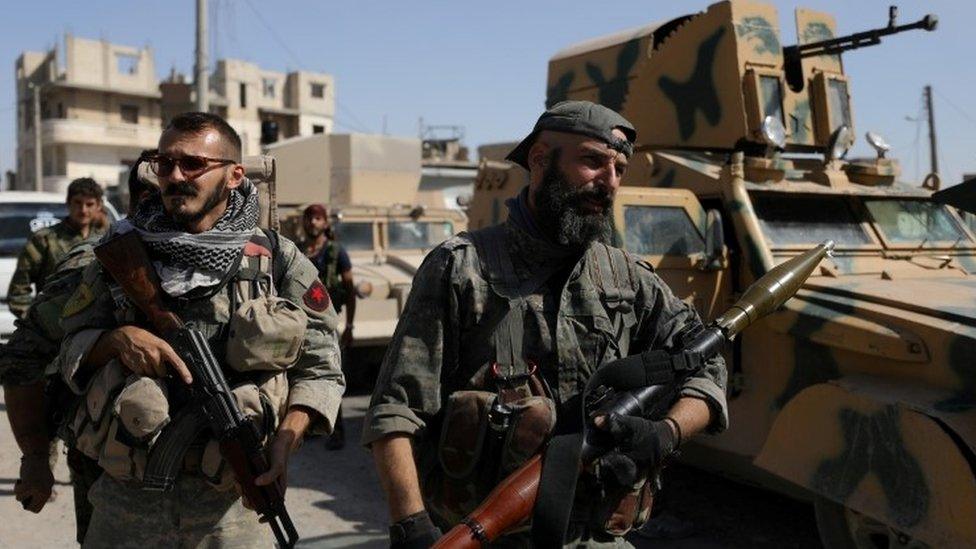
- Published12 October 2017
